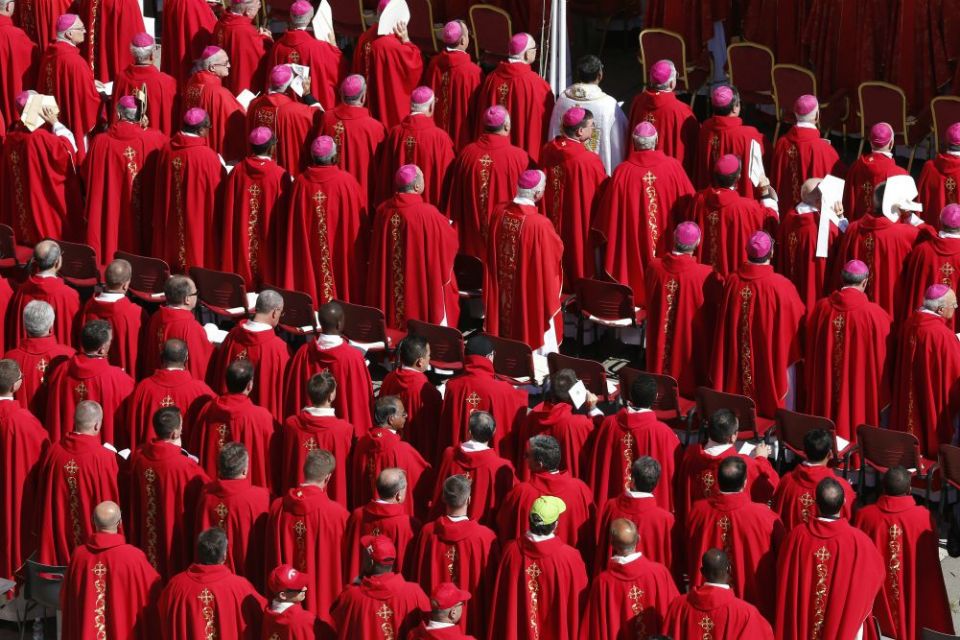No to clericalism and narcissism
As finger pointing and efforts to blame individuals or groups for the massive crisis in the Church today continues, and many church leaders, experts, those claiming to be theologians and justifiably angry and indignant Catholics diagnose the current tragic state of affairs in the church, theories abound.
Aug 31, 2018

By Fr Thomas Rosica
As finger pointing and efforts to blame individuals or groups for the massive crisis in the Church today continues, and many church leaders, experts, those claiming to be theologians and justifiably angry and indignant Catholics diagnose the current tragic state of affairs in the church, theories abound. In some misinformed minds, the current abuse crisis is caused by obligatory celibacy for priests in the Latin Rite, homosexual members of the clergy and episcopacy, alcoholics, bishops unwilling to submit their resignations, etc., yet there is one glaring word that many avoid speaking: the evil of clericalism that is at the root of the crisis.
We have a God-given right to be angry over the current situation but no right to despair. We must be in total solidarity with victims, repent, fast, pray and work together for a true cleansing of the temple — of the Church. We must pray that our anger and frustration not lead us to hopelessness but to a deeper witness of faith especially in such difficult times. It is not enough for us to simply feel terrible about the situation and say that we are sorry. We must dismantle forever the structures and systems that allowed such a moral catastrophe to engulf the Church. And these structures include the process of appointments of bishops and the naming of Cardinals. Until the Church at her highest levels names this great evil of clericalism and rids the Church of it, we will not move forward.
It is impossible to think of a conversion of our activity as a Church that does not include the active participation of all the members of God’s People. Indeed, whenever we have tried to replace, or silence, or ignore, or reduce the People of God to small elites, we end up creating communities, projects, theological approaches, spiritualities and structures without roots, without memory, without faces, without bodies and ultimately, without lives. This is clearly seen in a peculiar way of understanding the Church’s authority, one common in many communities where sexual abuse and the abuse of power and conscience have occurred. Such is the case with clericalism, an approach that “not only nullifies the character of Christians, but also tends to diminish and undervalue the baptismal grace that the Holy Spirit has placed in the heart of our people.”
Clericalism, whether fostered by priests themselves or by lay persons, leads to an excision in the ecclesial body that supports and helps to perpetuate many of the evils that we are condemning today. To say “no” to abuse is to say an emphatic “no” to all forms of clericalism. (cfr Letter to the People of God, Aug 20, see page 11)
Francis is wise and knows exactly of what he speaks. We are facing what is at the core of the current crisis: clericalism, the club mentality and a corrupt system of cronyism and ugly omertà that has seriously infected the church.
I
n his conclave-changing address to the cardinals on March 7, 2013, four days before his election to the See of Peter, then-Cardinal Jorge Mario Bergoglio identified what he believes is the Church’s fundamental illness: ecclesiastical narcissism.
“When the Church does not come out of itself to evangelise,” he said, “it becomes self-referential and then gets sick.”
That inward-looking Church, bent over on itself, obsessed with her own image, which doesn’t look sufficiently to Christ and doesn’t reflect him, his light and his love for those walking in darkness, quickly succumbs to what he called the worst evil of all, a “spiritual worldliness … living in itself, of itself, for itself”.
That, for Francis, is the fundamental corruption of the Church that needs to be reformed. “The next pope,” he declared, must be a man who, “from the contemplation of Jesus Christ and from worshipping Jesus Christ, will help the Church get out of herself and go to those on the outskirts of existence.” That spiritual exodus, Francis believes, is the fundamental conversion that the Church needs — and it’s one on which he wants to lead not only priests and curial officials, but laypeople as well.
(This article first appeared on NCRonline.org, the Website of National Catholic Reporter, and is being used with permission)







Total Comments:0